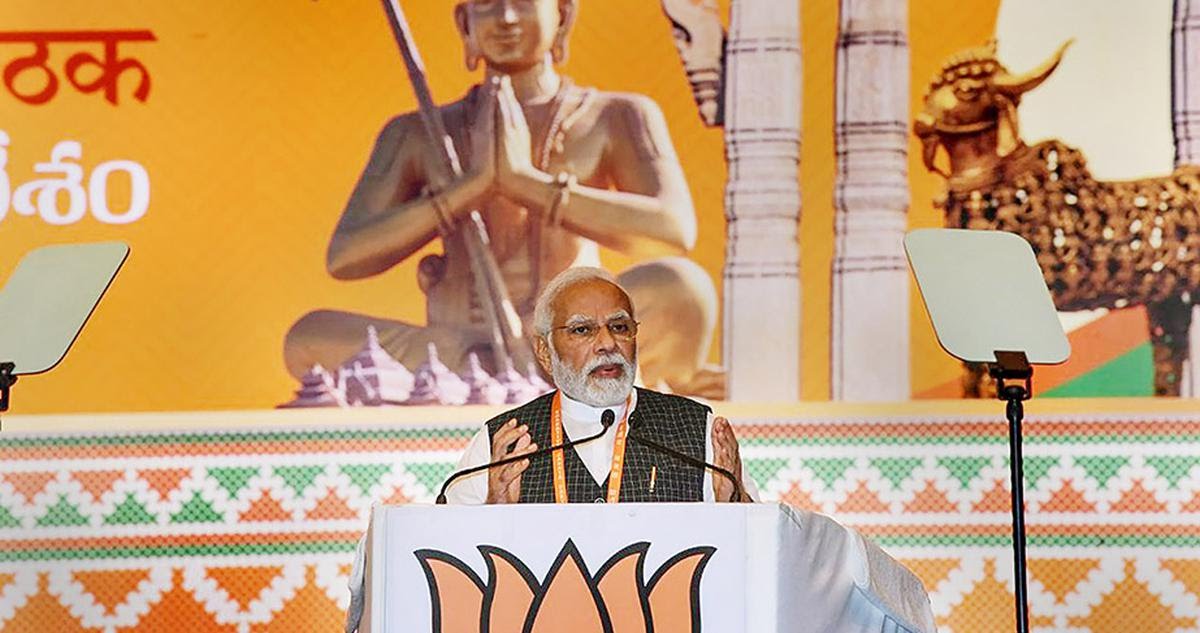PM Modi’s ‘minority move’ aimed at delinking them from ‘elite’ concerns

Big takeaway from PM at BJP’s national meet is to expand among communities that consider the party untouchable
Prime Minister Narendra Modi’s intervention at the recently concluded national executive meet of the Bharatiya Janata Party (BJP) held in Hyderabad, that the party reach out to the marginalised and “non-elite” sections of minority communities, was not just restricted to the Pasmanda community among Muslims, but also to see ways in which Christian communities in States like Kerala and Goa could be reached out to, especially by the BJP leaders of the northeast.
According to a senior party leader present at the meeting “the big takeaway from the national executive meet was not just about how to expand the party in geographical areas that the BJP had currently meagre presence but also among communities that have considered the party untouchable till now”.
As reported by The Hindu earlier, it was during the BJP’s discussion over the party’s bypoll wins in Azamgarh and Rampur in Uttar Pradesh (areas with significant minority populations) that the issue came up. “The Prime Minister made an intervention during U.P. unit chief Swatantra Dev Singh’s presentation, that there was a need for exploring new social equations within minority communities, the need to look at communities not as monoliths but with different interests and different positions within the social and economic hierarchies of these communities. That issues on which the elites or different ethnicities of a particular communities respond to are different from what the other ethnicities and poor and marginalised within these communities respond to,” a senior leader said, explaining the remarks.
Mr. Modi likened the move to the way social equations and political support have been mobilised within Hindu communities so far, for example, the U.P. BJP appointing a Muslim Minister hailing from the non-Syed category — a very clear move of delinking the backward sections of minority communities from the concerns and voter mobilisation capacities of the elite in these communities.
Assam Chief Minister Himanta Biswa Sarma’s intervention during the political resolution was on how certain Assamese Muslim communities were supportive of the BJP compared to Bengali speaking ones. Mr. Sarma’s speech also underlined that the party had won seats in Muslim dominated areas during municipal polls, not yet in Assembly or Lok Sabha polls, pointing to fact that the issues being voted on in local body polls were different.
Nalin Mehta, political scientist and author of The New BJP said, “By reaching out to Pasmanda Muslims now, Prime Minister Modi is trying to open a new conversation focused on the narrative of empowerment vis-a-vis marginalised groups while simultaneously trying to bypass existing elite community representatives. This planned outreach signifies an attempt to reset the BJP’s narrative on Muslims and seems to be modelled in many ways on Modi’s earlier political push with the Backward Classes among Hindus.”
The party’s expansion in the Christian dominated areas of the northeast was also flagged by Mr. Modi, who said that the BJP had won seats in the northeast even in areas where there was a “100% Christian population”. “These leaders, he said, should travel to States like Goa and Kerala to speak about the party,” a senior party leader shared.
The outreach to Christians is also not a new thing; Mr. Modi had spoken of it in 2016 as well. Most pertinently, it was late Defence Minister Manohar Parrikar who, for the first time in 2012, made inroads among the Christian community on a strong anti-corruption plank to be elected Chief Minister there. In fact, during the 2013 Assembly elections in Karnataka, a couple of BJP MLAs belonging to the Christian community were despatched to speak to community leaders in Mangaluru, but they didn’t get much response in the polarised coastal belt of the State.
The raising of the issue of reaching out to sections of the minority communities, and basically not treating them as monolithic entities, would be interesting if it hadn’t been mooted at a time when huge protests erupted over the Citizenship Amendment Act (CAA) and the bulldozing of the properties of minority community members for alleged acts of violent protest. This raises a cloud of doubt over just how much success the move will garner.
Source : TH




